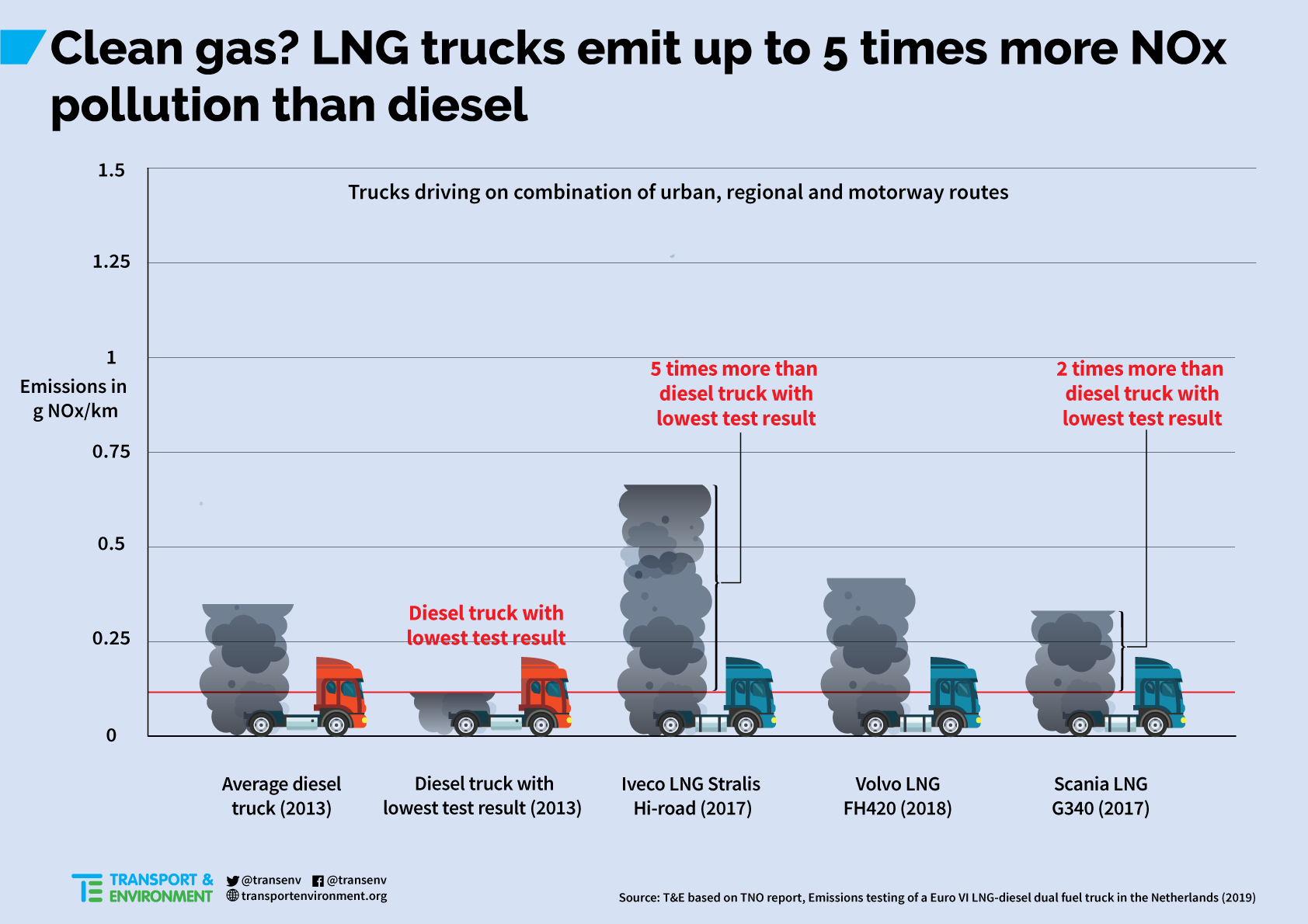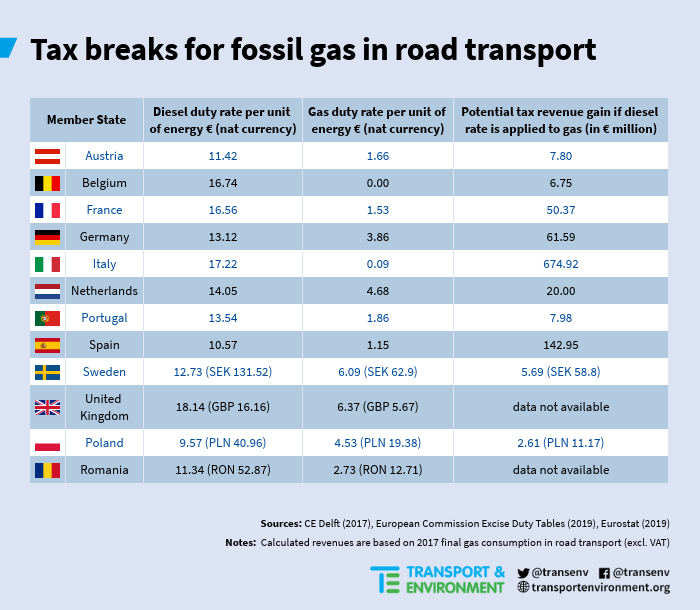
Interested in this kind of news?
Receive them directly in your inbox. Delivered once a week.
The three LNG trucks tested emit 2 to 5 times more poisonous NOx than the diesel truck with the lowest test result when driven in a combination of urban areas, regional routes and motorways. When driven in towns and cities, the gas trucks release 2 to 3.5 times more NOx than the tested diesel truck with the lowest emissions. Trucks run on biogas (biomethane) would have comparable air pollutant emissions as fossil gas trucks because the fuel characteristics are the same.
Truckmakers have long claimed that gas trucks cut nitrogen oxide (NOx) emissions. In 2016 Iveco said its Stralis gas truck reduced NOx emissions by 30% ‘to a bare minimum’. Scania claimed NOx pollution would be cut by ‘more than a third’ in gas trucks compared to diesel.
T&E, which published the test results commissioned by the Dutch government, said EU governments should stop encouraging the uptake of polluting LNG trucks by ending the extremely low tax rates that fossil gas for transport enjoys in most countries. As gas is little or no better than diesel for greenhouse gas emissions, EU and national lawmakers should focus on promoting zero-emissions vehicles instead of sinking resources into gas infrastructure and incentives for LNG trucks.
T&E’s clean trucks manager, Stef Cornelis, said: ‘Gas trucks are not clean and can actually be worse than diesel. It’s time for policymakers to have a fresh look at the evidence and put an end to gas truck subsidies, LNG infrastructure investments and tax breaks for what is just another polluting fossil fuel.’
The on-road tests also show that all three gas trucks tested produce levels of particle emissions comparable to diesel trucks. Particles can penetrate deep into the lungs and be absorbed into the blood, causing heart disease, strokes and lung cancer. These findings are in sharp contrast to truckmakers’ advertisements claiming that with LNG trucks particle emissions are almost completely eliminated.
Gas trucks also do not offer a pathway to decarbonise trucking: the Scania and Iveco trucks with spark ignition engines recorded tailpipe greenhouse gas (GHG) emissions just 3 to 5% lower than the diesel truck with the lowest test result. Volvo’s LNG truck with high pressure direct injection (HPDI) reduces emissions by 14%. However, T&E calculations show that when the extraction and transportation of the gas, including methane leakage, is factored in, spark ignition LNG trucks are worse for the climate than diesels, while HPDI gas trucks are only delivering a small benefit.
Despite this, fossil gas used in transport is supported by EU governments with tax breaks, road toll exemptions and subsidies. Without these subsidies there would be no market for gas in transport.
Stef Cornelis concluded: ‘The gas industry is desperate to convince policymakers that gas trucks have a climate benefit because they want to grow their market. The simple fact is that it’s a fossil fuel just like oil and coal, so it needs to be phased out.’



